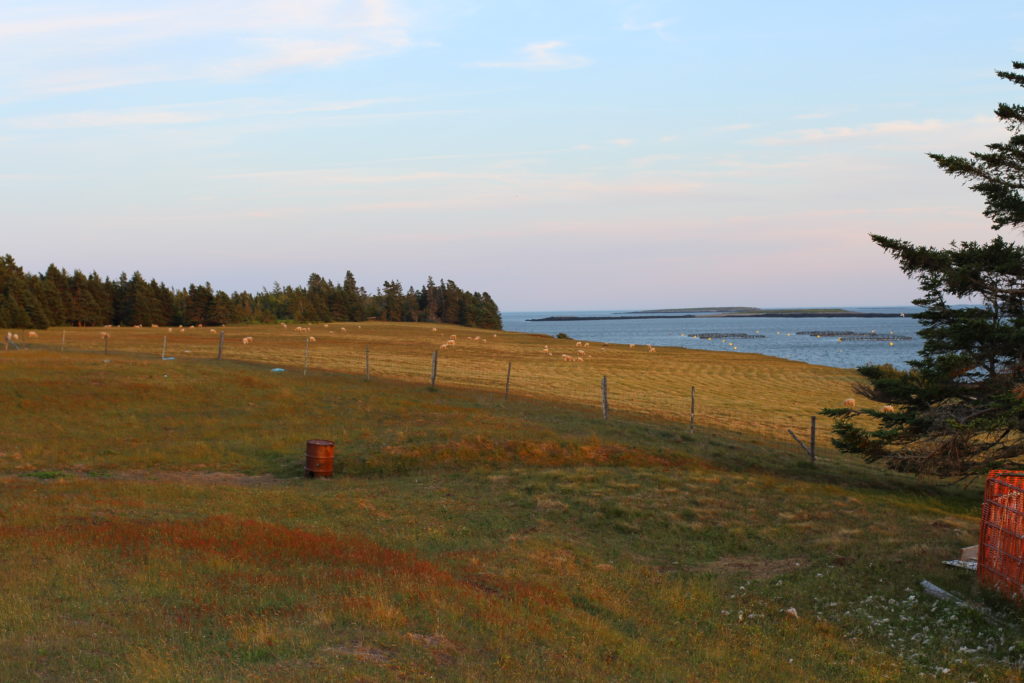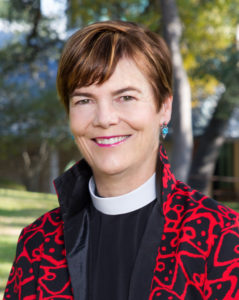I think it’s a very hard question, and it is provoked by a moment in Diana Butler Bass’s book Grounded: Finding God in the World – A Spiritual Revolution. Bass describes a time in her childhood after moving to the country when she begins to experience dirt as something to be investigated and not avoided:
Although I had always believed that God lived in that building, I unexpectedly discovered that God was also present in the woods as I followed streams through the forest . . . . At the Methodist church, I learned how to follow the rules, how to be an obedient Christian girl. But the country – the place of dirt that I had previously feared – became a source of wonder. Those woods and farms were a sanctuary of the sacred, a place where the Bible actually spoke. There were sheep and goats in pastures, fields ripe to harvest, and vines and trees bearing fruit.
Freed from memorizing Bible verses in the church basement, I sank into the world charged with the Word of God. There I not only heard about God, but I met God while watching tadpoles in the spring and listening to the wind-rustled golden trees in the autumn . . . . (34)
At one point Bass confesses that “church has become a spiritual, even a theological struggle for me . . . ” (23). This disinterest in “church” she shares with the “nones,” those who profess no religious faith. Now, I have to confess in turn that I am a churchgoer – I am a professional goer-to-church, and, without a radical vocational reorientation, I do not have the choice to opt out. I am deeply committed to the work of a theological seminary, a place that forms people for leadership in communities of faith – lots of them known as “churches.” At the same time I resonate with the desire to “ground” the metaphors of the faith in the real world – real soil, real water, real flesh-and-blood people. I too experience the holy in the dirt, the sea, and the sky. I love the English poetic tradition that plays and replays the scriptural metaphors of seeds and sowers, the tree of life and the tree of death.
But to the option to opt out, I find myself crying, “No! Some people have to keep going to church!”
Some people have to keep going to church. The “some” comes from my realism and acceptance of pluralism and temperamental lack of absolutism.
But why? Why go? Why sing those old chestnuts and read scripture that can be taken so literally and recite out of the dusty Book of Common Prayer? Why?

My first answer arises out of my sense of how metaphors work. Biblical metaphors are deeply connected with the world, from which they receive their meaningfulness and to which they return to interpret and illuminate. That tension between the sheep and the goats in the parable and the sheep and the goats in the pastures is necessary. If the sheep and the goats in the coloring book in the church basement went away, if congregations no longer sang “The King of Love My Shepherd Is,” if there was no more “Christ our Passover is sacrificed for us,” I believe that the pastures would be no longer sacred in the same way; the opportunity to experience the holy there would be lost; we would have no words for it to be real.
I can’t picture a world where “all” go, but I am convinced that some people, some community, must go, and there wholeheartedly speak and sing full-throated praises to God who breathes life into dirt and brings life from death, even with the inevitable risk that those metaphors will get literalized or become detached from their world. Those “somes” will keep the metaphors alive, and then others can opt out or get lost or wander away and they will have a place to find their way back to.
There are many other answers also.
How would you phrase the question, and how would you respond?
“Why do (at least some) people need to go to church?”



